Therapeutic Use of Self: Communication and Alliance in Healthcare
VerifiedAdded on 2022/08/26
|8
|772
|33
Essay
AI Summary
This essay delves into the therapeutic use of self, emphasizing the critical role of therapeutic alliance in achieving desired outcomes in psychological therapy. It highlights the significance of forming personal bonds, establishing agreement on tasks, and aligning treatment goals between patient and therapist. The essay explores essential communication skills, including verbal and non-verbal techniques, active listening, and treating every client equally. It then examines the components of motivational interviewing (MI), such as spirit, principles, and skills, and their relationship to creating a therapeutic alliance. The essay further discusses the practical application of these skills in current and future healthcare practice, emphasizing the importance of positive attitudes, careful listening, and motivational interviewing techniques. It concludes by reiterating the importance of effective communication in developing therapeutic alliances and utilizing all elements of motivational interviewing to foster strong patient-therapist relationships. The essay references several studies to support its claims.
1 out of 8

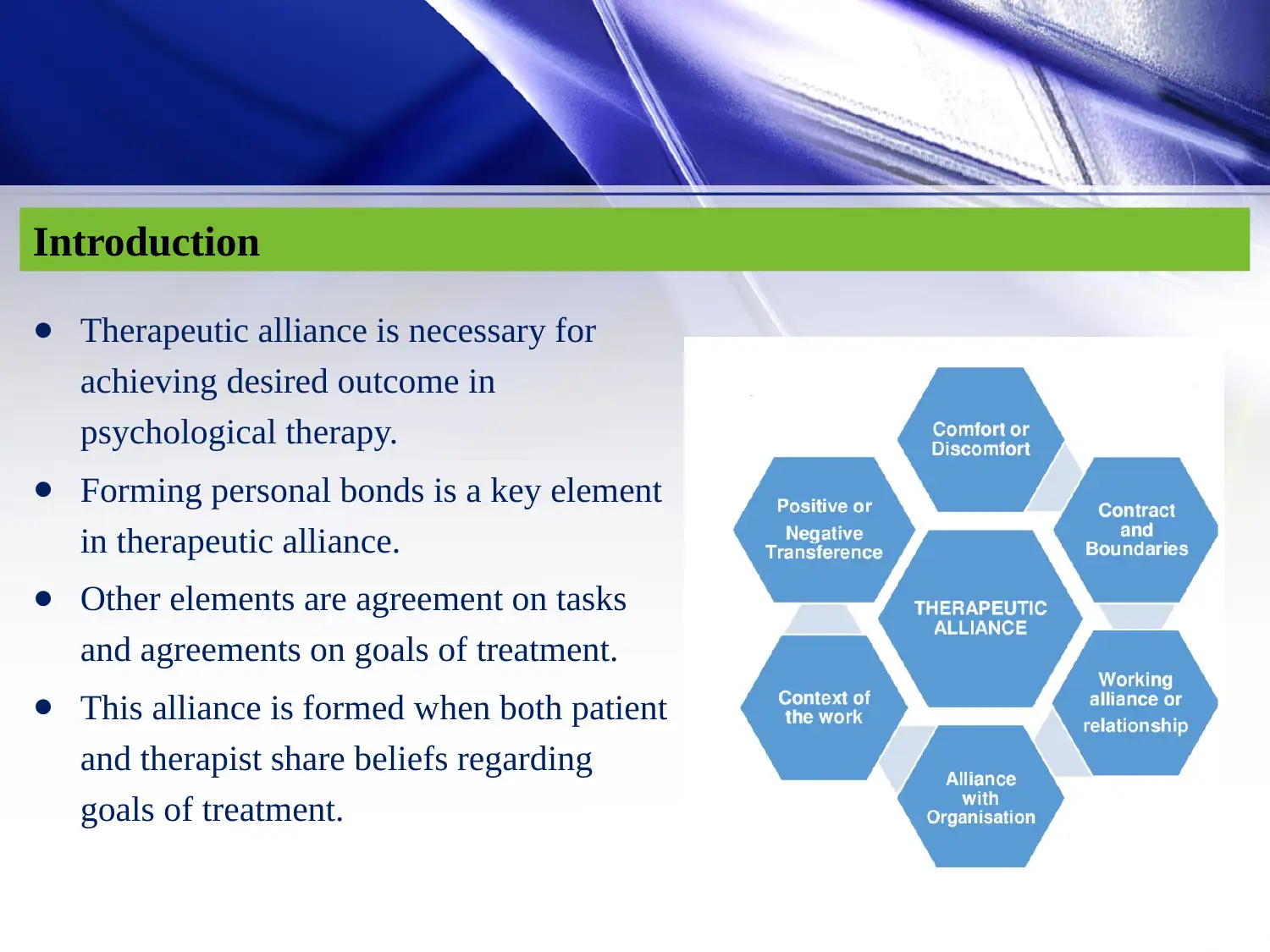
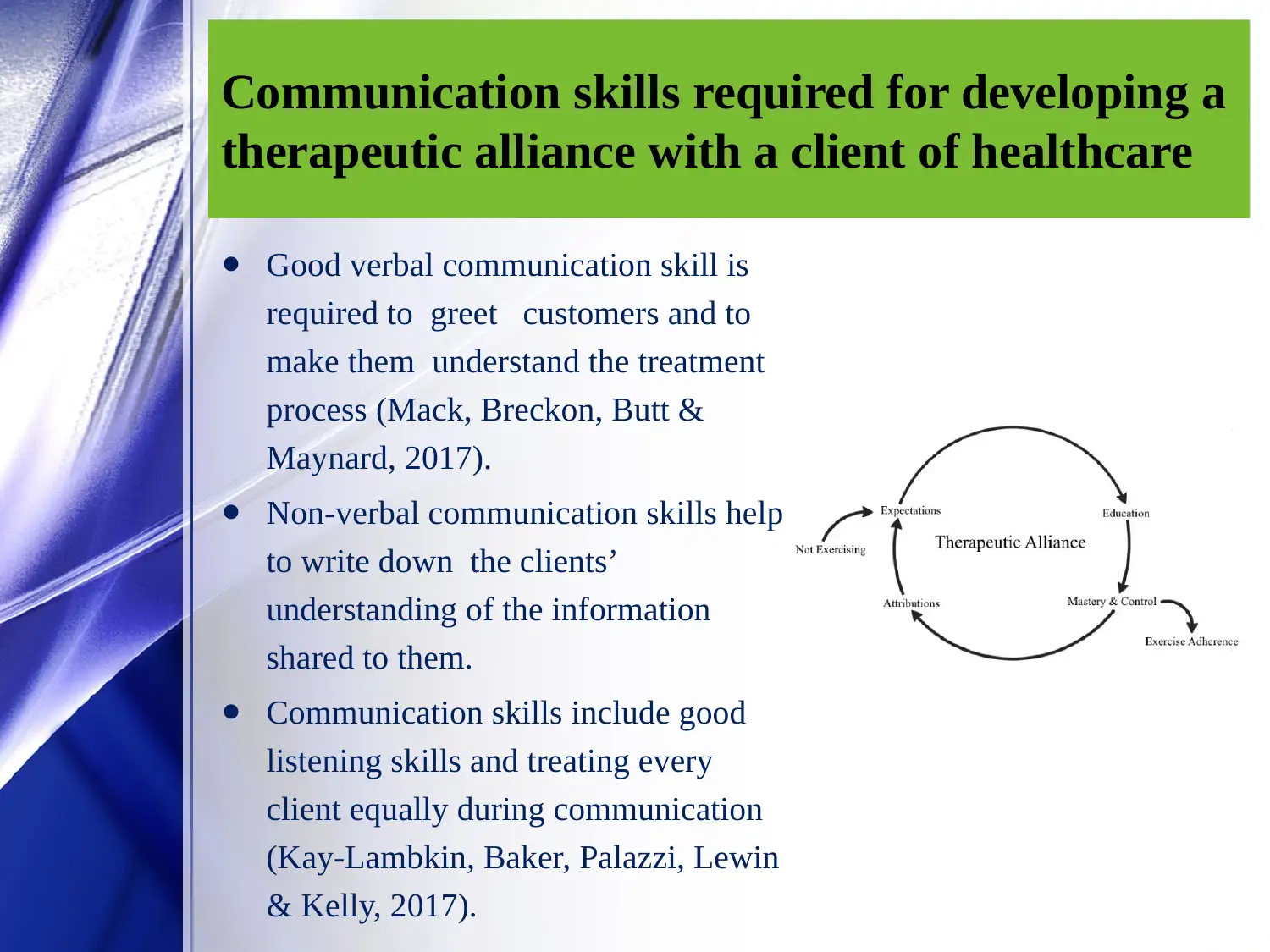

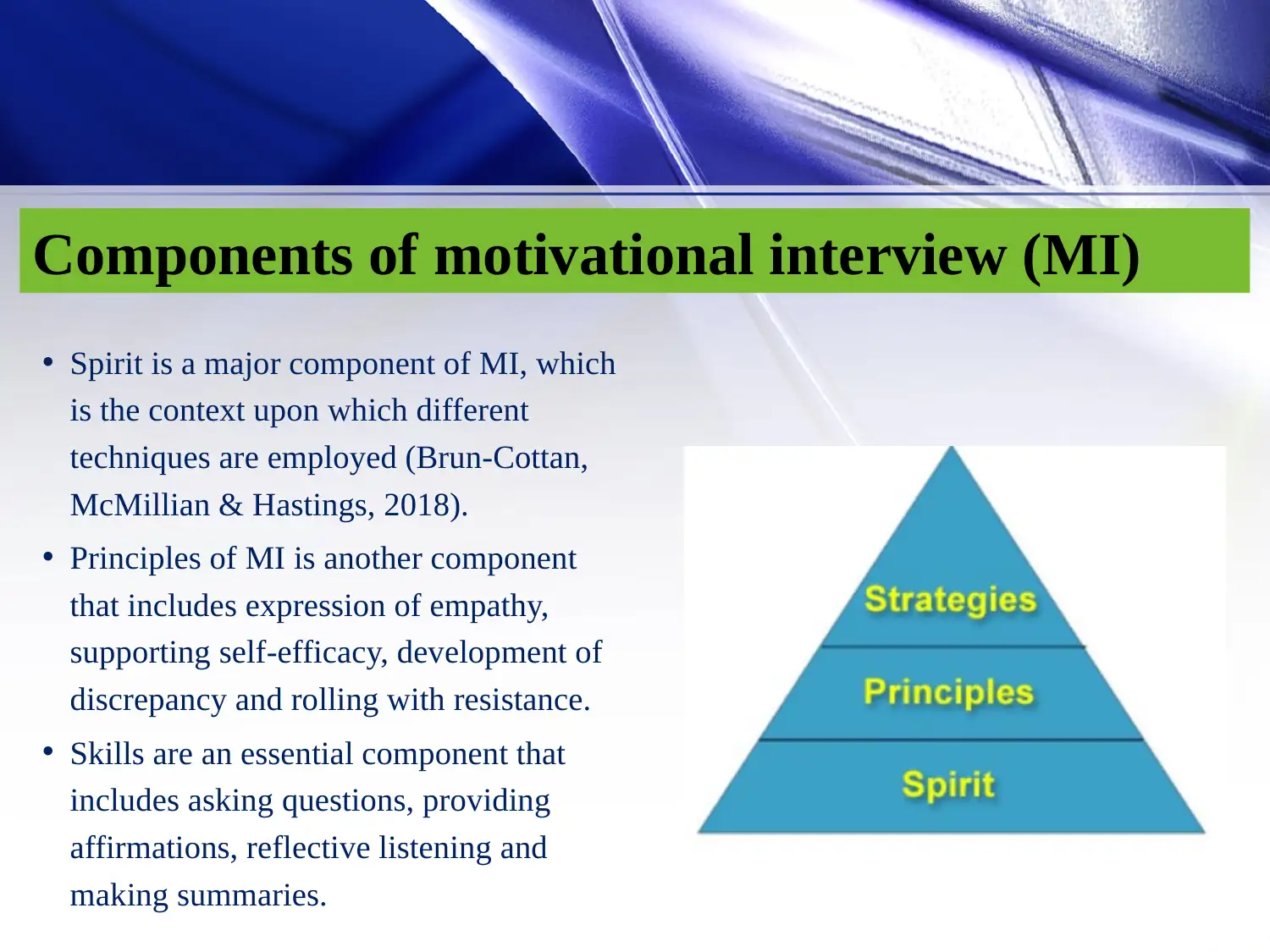
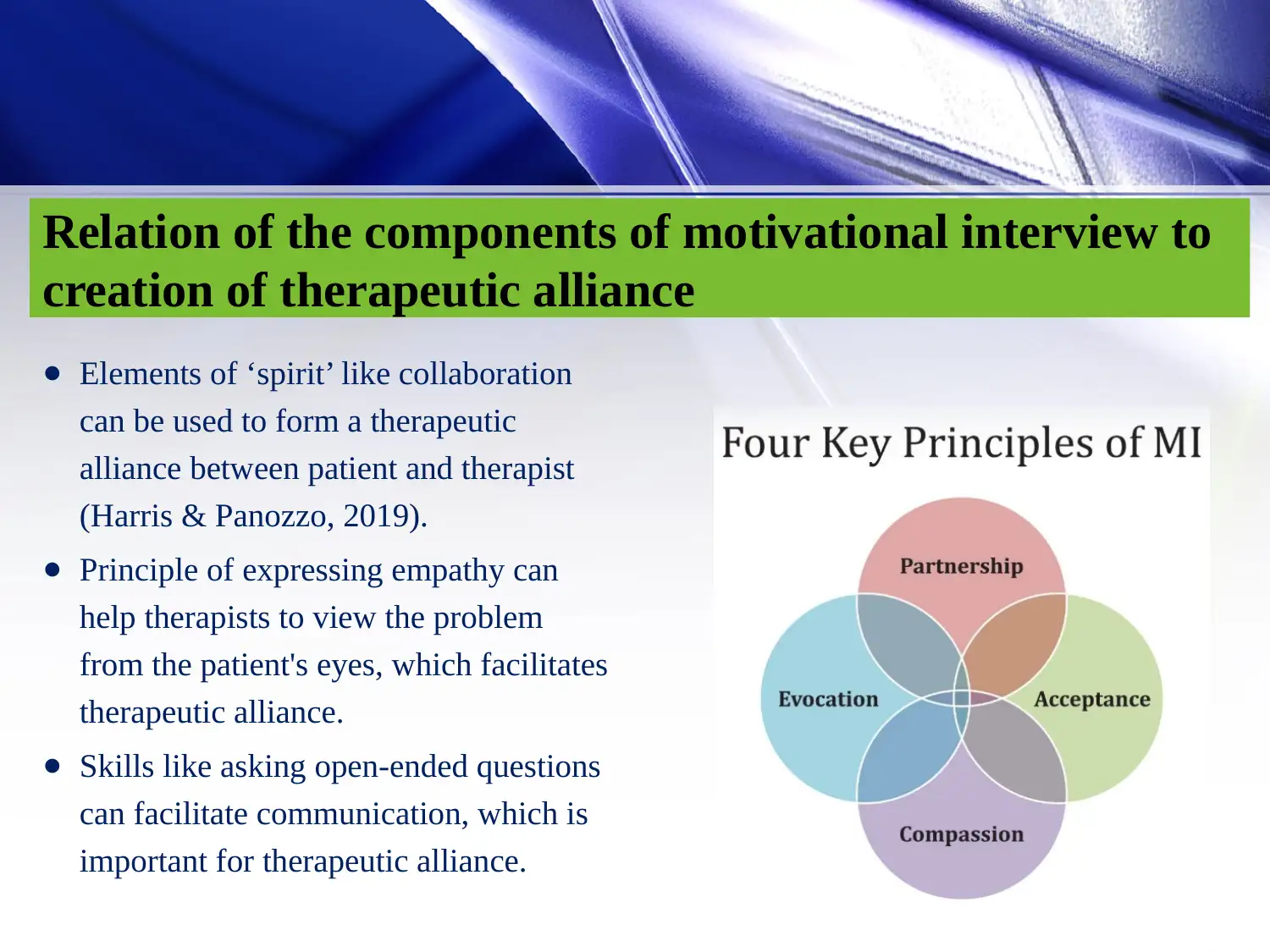
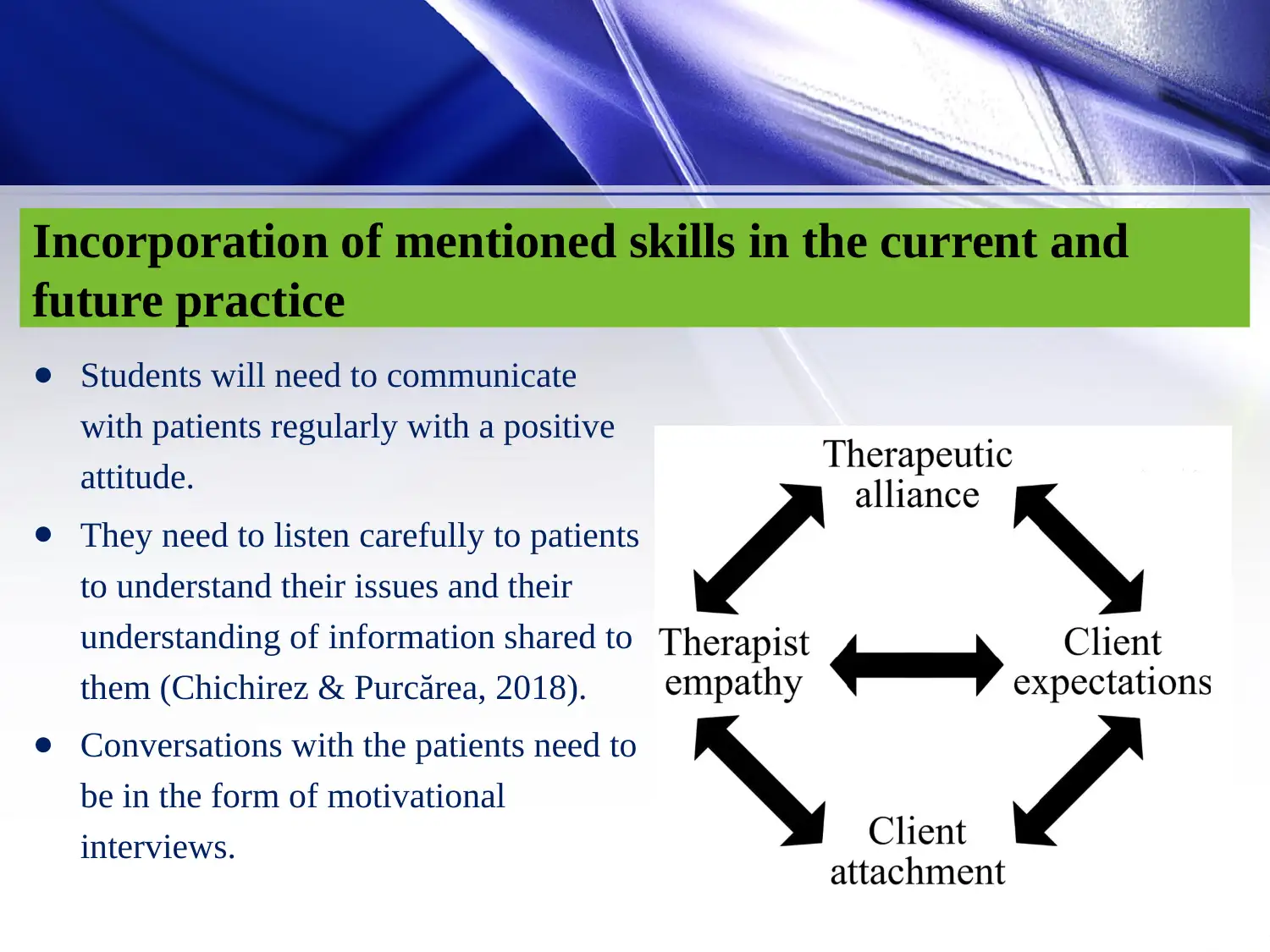
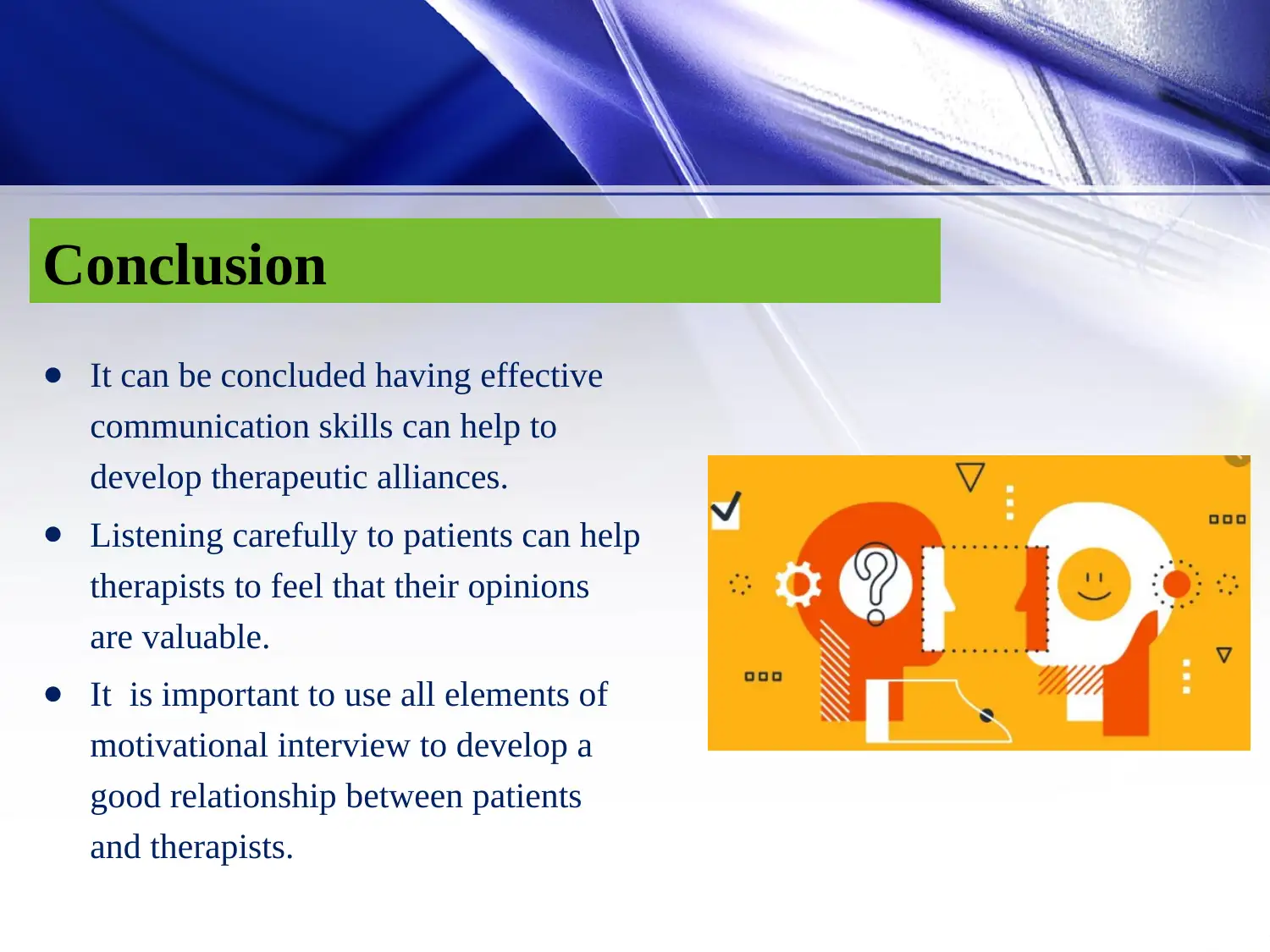
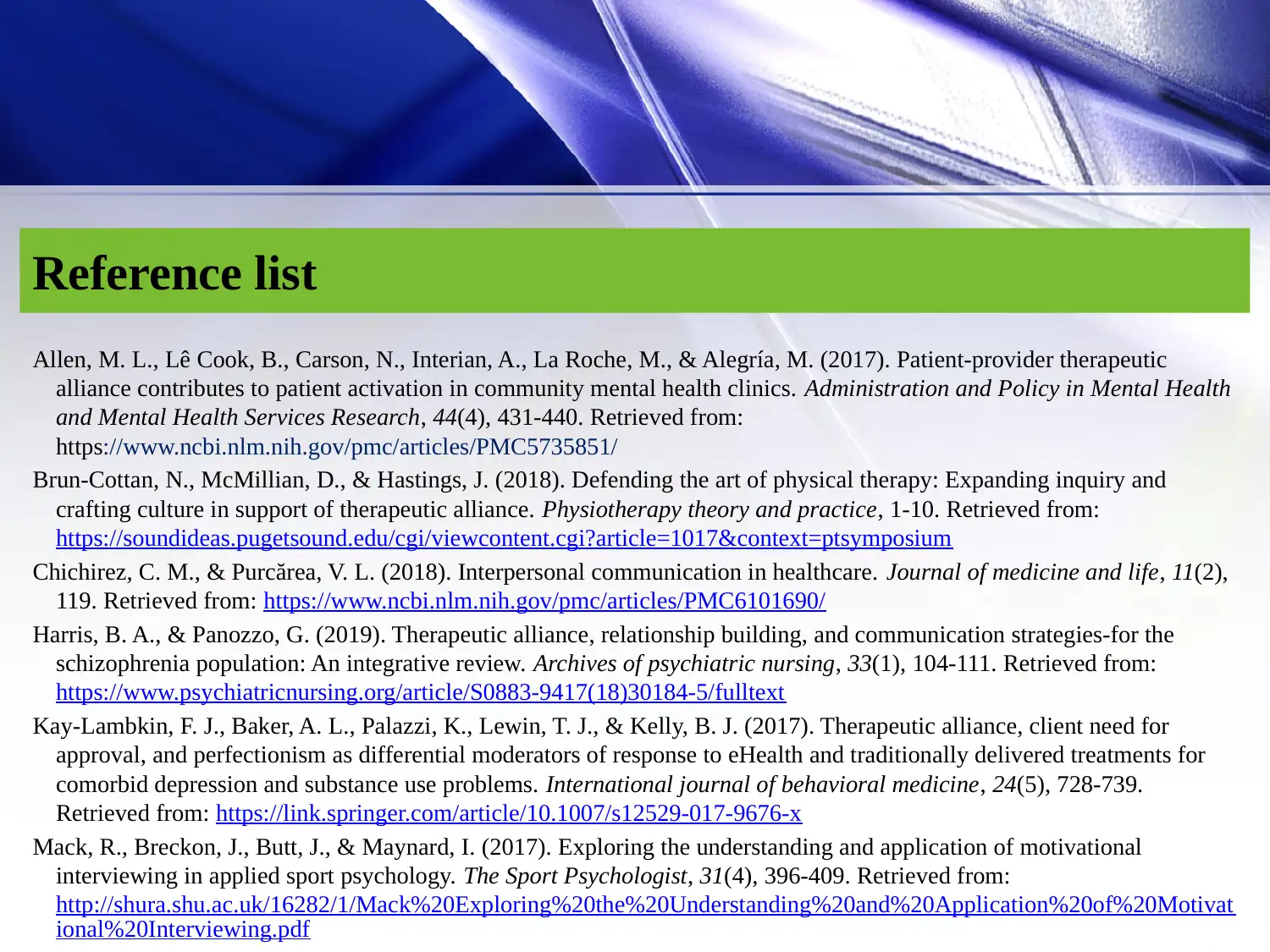





![[object Object]](/_next/static/media/star-bottom.7253800d.svg)